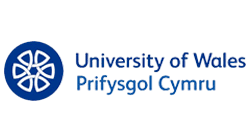Project partners
 Bangor University
Bangor University
Founded in 1884, Bangor University has a long tradition of academic excellence and a strong focus on the student experience. Around 11,000 students currently study at the University, with 650 teaching staff based within twenty-three Academic Schools.
Bangor University is ranked in the top 40 in the UK for research, according to the Research Excellence Framework (REF) 2014. The REF recognised that more than three-quarters of Bangor’s research is either world-leading or internationally excellent, ahead of the average for UK universities.
Carol Tully is Professor of German at Bangor University. She has established an international reputation as a scholar in the area of European cultural exchange in the nineteenth century with a primary focus on Germany and Spain. She has published a number of books, scholarly editions, translations and journal articles.
Dr Rita Singer specialises in fictional and non-fictional Welsh writing in English from the nineteenth and early twentieth century. Her research interests also include the history of the visitors’ book and illustrated travel accounts. She has published articles about historical novels relating to Wales as well as edited several volumes of early Welsh novels and short stories in English.
 Centre for Advanced Welsh and Celtic Studies
Centre for Advanced Welsh and Celtic Studies
The Centre for Advanced Welsh and Celtic Studies (CAWCS) was established by the University of Wales in 1985 as a dedicated research centre conducting team-based projects on the languages, literatures, culture and history of Wales and the other Celtic countries, and has gained an international reputation as a centre of excellence in the field of Celtic Studies. Located in purpose-built accommodation adjacent to the National Library of Wales in Aberystwyth, it currently has just over twenty staff and a small cohort of research students.
Dr Heather Williams is a comparatist working in French Studies and Celtic Studies. She joined the University of Wales Centre for Advanced Welsh and Celtic Studies in 2007 as Pilcher Senior Fellow. Her research interests include travel writing, especially in relation to postcolonialism and translation studies; travellers to Brittany and to Wales from Romanticism onwards.
 The Royal Commission on the Ancient and Historical Monuments of Wales
The Royal Commission on the Ancient and Historical Monuments of Wales
Based in Aberystwyth, the Royal Commission on the Ancient and Historical Monuments of Wales has a leading national role in developing and promoting understanding of the archaeological, built and maritime heritage of Wales, as the originator, curator and supplier of authoritative information for individual, corporate and governmental decision makers, researchers, and the general public.
The landscape and built heritage of Wales result from people’s interaction with the natural world over thousands of years. Since it was established in 1908, the Royal Commission has led the way in researching and explaining the remains of that interaction – the archaeology and the historic buildings we see around us.
The Royal Commission holds a unique collection of photographs, maps, images, publications and reports within its archive, The National Monuments Record of Wales, which can be consulted on their online database Coflein or by making an enquiry to our Enquiry Services section.
Susan Fielding is Senior Investigator (Historic Buildings) at the Royal Commission. Her areas of research include Places of Worship and nineteenth and twentieth century architecture, and the application of new technologies for survey, interpretation and dissemination.
Scott Lloyd is the project development officer at the Royal Commission. His areas of research include medieval chronicles and antiquarian works relating to Wales, alongside methods of digital delivery for digital products.
